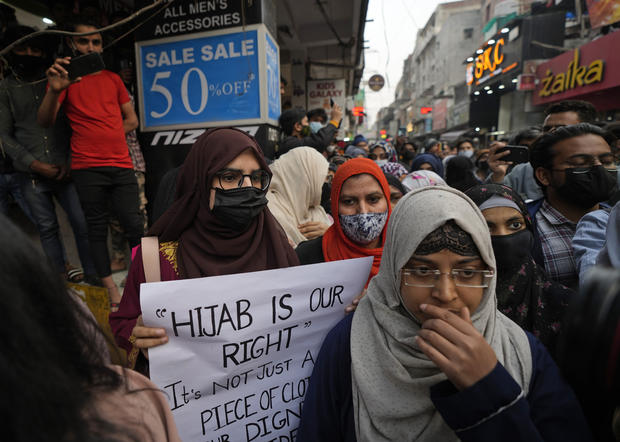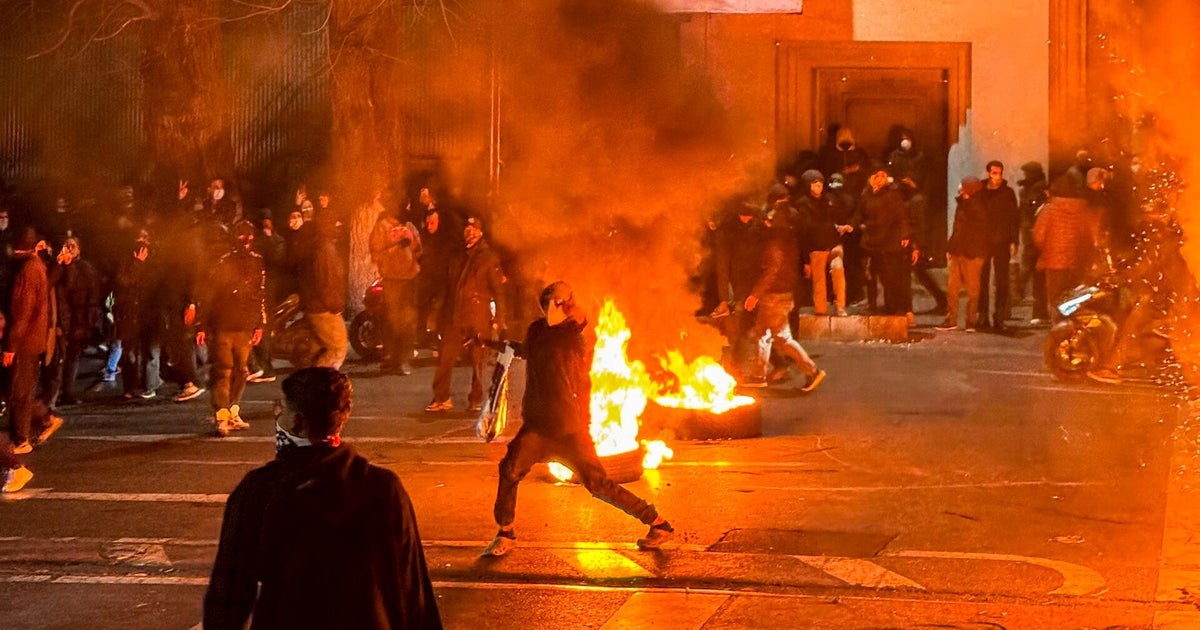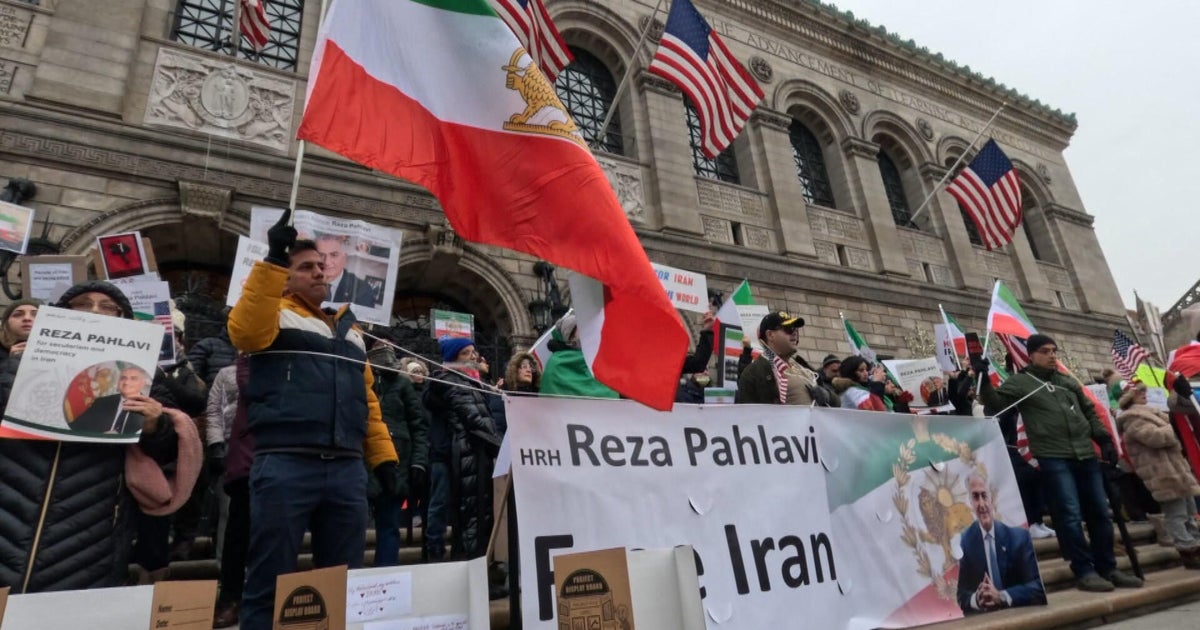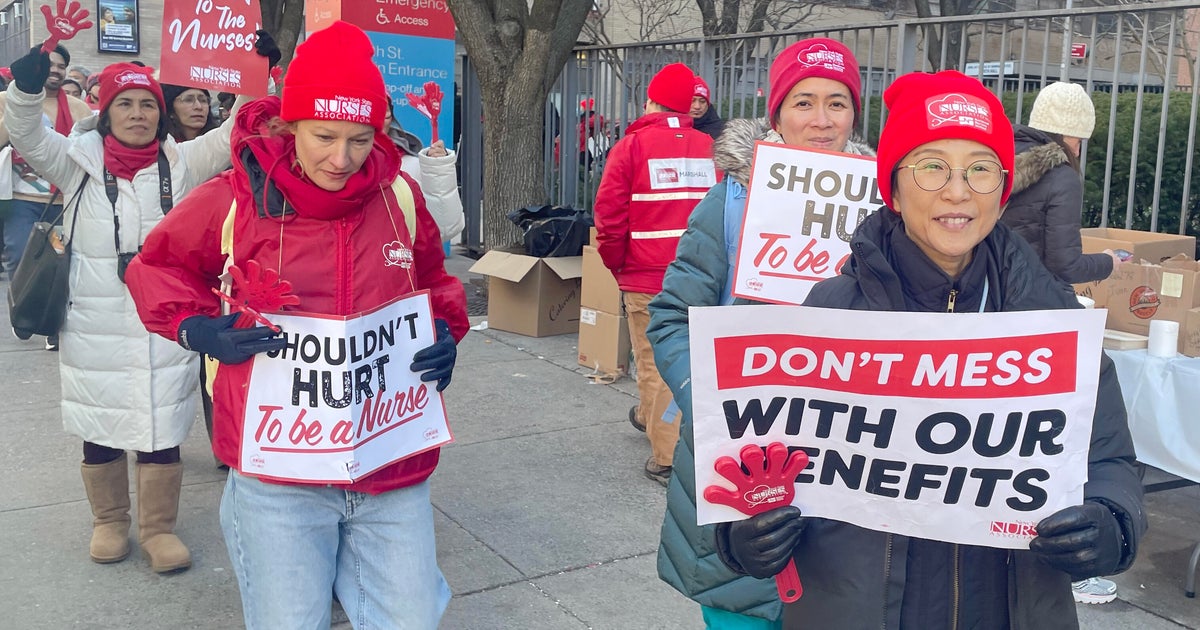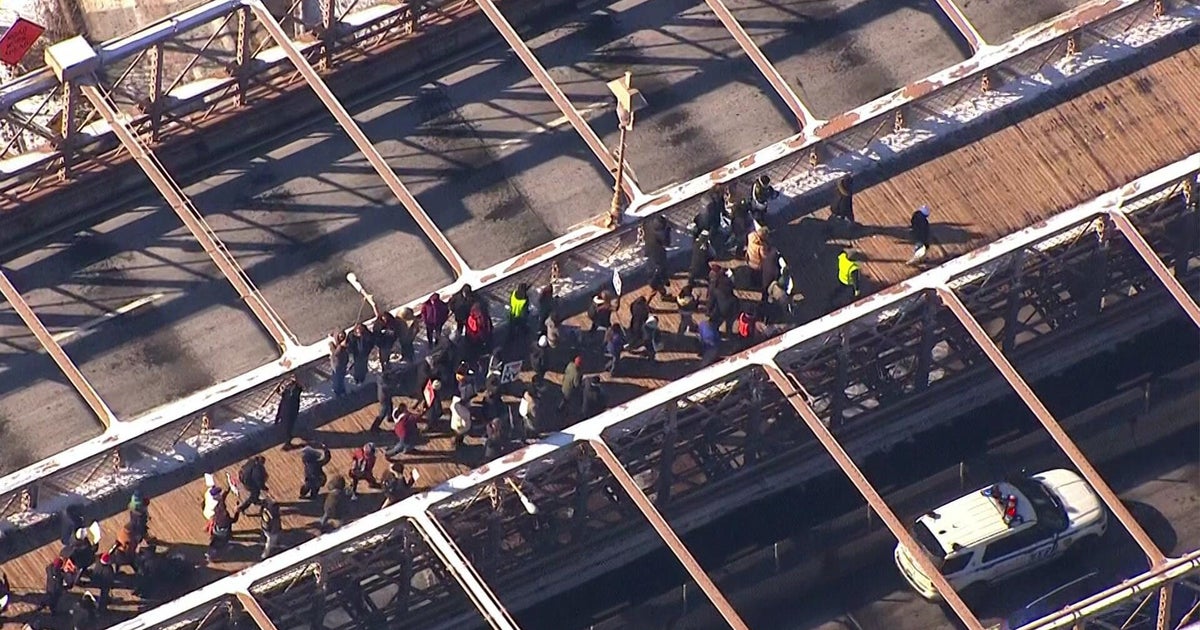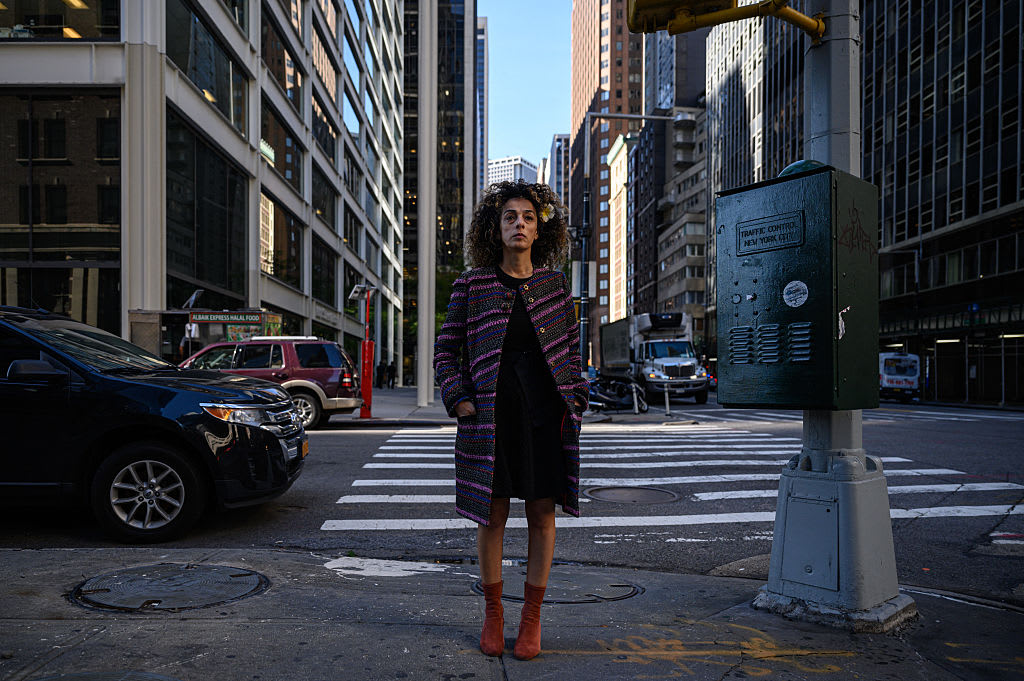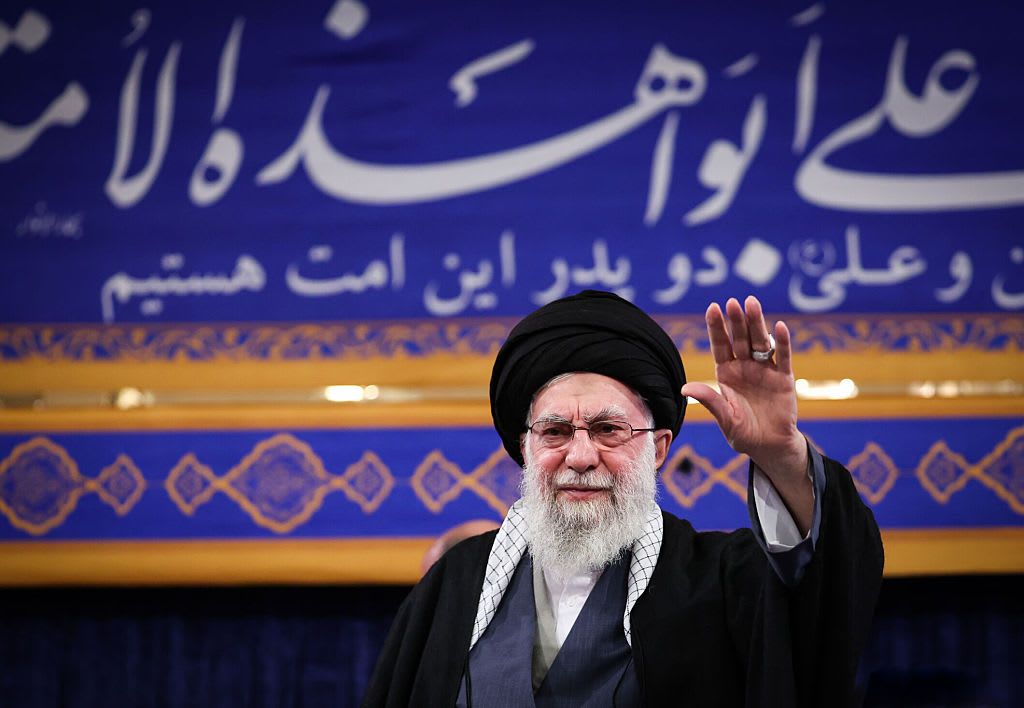India college's ban on Muslim headscarf sparks protests, condemnation from Malala Yousafzai
New Delhi — Nobel Peace Prize laureate Malala Yousafzai has urged Indian leaders to "stop the marginalization of Muslim women" amid mounting protests over a college's ban on students wearing the traditional Islamic headscarf, or hijab.
Authorities in the southern Indian state of Karnataka on Tuesday ordered schools and colleges to close for three days, and on Wednesday they banned gatherings near all educational institutions for two weeks in a bid to curb the protests, which have drawn counter-protests by Hindu students.
There were reports of dueling protesters pelting each other with stones and of police resorting to force on Tuesday as the demonstrations spread to more colleges and at least two other states.
"Refusing to let girls go to school in their hijabs is horrifying," Yousafzai wrote on Twitter, quoting a report in which a Muslim student said she and her classmates were being forced to choose between learning, and wearing the hijab.
"Objectification of women persists — for wearing less or more. Indian leaders must stop the marginalization of Muslim women," wrote Yousafzai, who was 15 when she survived an attack by the Taliban in Pakistan for speaking out on girls' right to education.
The hijab protests in India started in January at a government-run college in Karnataka state's Udupi district, when six teenaged girls were barred from classes for wearing the head covering. The college introduced its ban on the hijab in December, saying the scarves violated school uniform rules.
Talks between the protesting students and college administrators failed to resolve the crisis, as more colleges implemented new hijab bans. As the protests started to garner headlines, Hindu students began turning up in schools wearing shawls in saffron — a color that symbolizes India's majority Hindu population — in protest against Muslim women and girls wearing hijabs.
Soon the protests spread, with students holding marches and shouting religious slogans.
One video of a lone Hijab-clad Muslim girl being heckled outside a college by a group of Hindu students in saffron scarves, shouting religious slogans, went viral on Tuesday. It shows the girl responding with shouts of the Muslim refrain "Allahu Akbar" (God is great) before she's escorted away by college staff.
"They started shouting 'Jai Shri Ram' [Hindu proclamation of faith], so I started screaming 'Allahu Akbar,'" Muskan, the Muslim girl, later told Indian news outlet NDTV. "We will continue to protest for the hijab."
On Wednesday, after hearing petitions challenging the hijab bans at colleges in the state, a judge at the Karnataka High Court said it was too serious a matter for a lone arbitrator to rule on, noting that: "These matters give rise to certain constitutional questions of seminal importance in view of certain aspects of personal law."
The court's Chief Justice will now appoint a multiple-judge bench to hear the case.
The hijab standoff has angered much of India's Muslim community, which, at approximately 200 million, is a minority in the country of almost 1.4 billion people.
Many believe Muslims have been marginalized in India for decades, but increasingly during the eight years of Hindu nationalist Prime Minister Narendra Modi's tenure.
Two years ago, Modi faced violent protests by Muslims across the country when his government brought in a new citizenship law that singled out members of the religion.
India has repeatedly witnessed deadly Hindu-Muslim violence over the course of its 75-year history as an independent nation, with its politics and society deeply divided along religious lines.
That divide is generally highlighted, even exploited, around elections, when political parties try to polarize voters by focusing on religious issues. The current tension around the hijab comes ahead of elections in five states, including in the key state of Uttar Pradesh, where people start heading to the polls on Thursday.
Over the years, Modi's Bharatiya Janata Party (BJP) has been accused of running an anti-Muslim campaign and backing violence against minorities, but it rejects all of the allegations.
